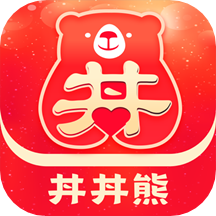Discover the English Term for Chinese Valentine's Day: Qixi Festival
作者:佚名 来源:未知 时间:2024-11-25
七夕情人节用英文怎么说

In the realm of cultural celebrations, the Qixi Festival, also known as the Chinese Valentine's Day, holds a unique position. It is a time when lovers across China, inspired by the timeless tale of the Cowherd (Niu Lang) and the Weaver Girl (Zhi Nu), express their affection and commitment to each other. As this festival gains popularity globally, understanding how to articulate it in English becomes pertinent. This article aims to provide a comprehensive guide on how to say "七夕情人节" in English, exploring its origins, significance, and various English translations.

Origins and Significance of Qixi Festival
The Qixi Festival, falling on the seventh day of the seventh lunar month, is steeped in rich folklore. According to Chinese mythology, the Cowherd and the Weaver Girl, two lovers separated by the Milky Way, are allowed to meet only once a year on this day thanks to the magical powers of a magpie bridge. This moving tale reflects the deep-rooted values of love, sacrifice, and hope that resonate with people worldwide.

The festival is marked by various customs and traditions, including watching stars, praying for good fortune, and offering sacrifices to the gods. Couples exchange gifts, write love letters, and participate in activities that symbolize unity and everlasting love. The night sky, adorned with shimmering stars, serves as a backdrop for romantic rendezvous, making it a perfect setting for love declarations and commitments.

English Translations of Qixi Festival
Translating "七夕情人节" into English requires capturing the essence of the festival's cultural and romantic connotations. Here are several translations that convey different aspects of the festival:
1. Double Seventh Festival: This literal translation captures the date of the festival, the seventh day of the seventh lunar month. While it may not explicitly convey the romantic aspect, it is a straightforward and commonly used term in English.
Example: "The Double Seventh Festival is an important celebration in Chinese culture, marking the reunion of the Cowherd and the Weaver Girl."
2. Chinese Valentine's Day: This translation highlights the romantic nature of the festival, equating it to the Western Valentine's Day. It is particularly useful when discussing the festival in an international context, where the concept of Valentine's Day is widely understood.
Example: "Couples around China celebrate Chinese Valentine's Day by exchanging gifts and sharing meals together."
3. Qixi Festival (Qixi being the romanization of 七夕): This translation retains the original Chinese name while making it accessible to English speakers through romanization. It is commonly used in academic and cultural discussions to preserve the festival's authenticity.
Example: "The Qixi Festival is a celebration of love and fidelity, inspired by the legend of the Cowherd and the Weaver Girl."
4. Night of the Magpie Bridge: This poetic translation refers to the magical bridge formed by magpies that allows the Cowherd and the Weaver Girl to meet. It captures the mystical and romantic atmosphere of the festival.
Example: "The Night of the Magpie Bridge is a night of love and dreams, where lovers reconnect across the celestial divide."
Understanding the Context of Translations
Each translation serves a different purpose and is suited to specific contexts. For instance, "Double Seventh Festival" may be more appropriate in historical or factual discussions, while "Chinese Valentine's Day" might be better suited for promotional materials or conversations aimed at a broader audience.
It's worth noting that translations can vary depending on the target audience and the purpose of the communication. Some translations may prioritize cultural accuracy, while others may focus on accessibility and readability. As such, it's essential to consider the context in which the translation will be used.
Cultural Nuances in Translation
When translating "七夕情人节," it's crucial to be mindful of cultural nuances that might be lost in translation. The festival's significance extends beyond romantic love, encompassing themes of family, loyalty, and divine intervention. These elements are embedded in the festival's customs and traditions, making it a multifaceted celebration.
Therefore, translations should aim to convey the festival's holistic nature rather than reducing it to a single aspect. This can be achieved by providing additional context or explanations when introducing the festival to English speakers.
Celebrating Qixi Festival in English-speaking Countries
As globalization brings cultures closer, the Qixi Festival has begun to gain traction in English-speaking countries. While it may not hold the same historical significance as in China, many people celebrate it as a romantic occasion, inspired by the tale of the Cowherd and the Weaver Girl.
In these countries, the festival is often celebrated with activities such as stargazing parties, cultural performances, and the exchange of romantic gifts. Many also take the opportunity to learn more about Chinese culture and traditions, making the festival a bridge between East and West.
English-language Resources for Qixi Festival
For those interested in exploring the Qixi Festival in greater depth, there are various English-language resources available. These include:
Books and Articles: Several publications delve into the history, customs, and significance of the festival, providing a comprehensive understanding of its cultural background.
Websites and Blogs: Websites and blogs dedicated to Chinese culture often feature articles, videos, and images celebrating the Qixi Festival. These resources can be invaluable for those looking to experience the festival virtually or learn more about its traditions.
Social Media: Social media platforms are a great way to connect with communities celebrating the festival worldwide. Many people share their experiences, customs, and traditions, creating a vibrant online community.
Conclusion
In conclusion, the Qixi Festival, or Chinese Valentine's Day, is a celebration of love, culture, and tradition. While there are several English translations for "七夕情人节," each serves a unique purpose and is suited to specific contexts. By understanding these translations and their cultural nuances, we can better appreciate the festival's significance and share its beauty with the world.
As we celebrate this special day, let us remember the timeless tale of the Cowherd and the Weaver Girl and the lessons it teaches us about love, sacrifice, and hope. Whether you're sharing a romantic evening with your loved one, learning about the festival's customs, or simply enjoying the beauty of the night sky, the Qixi Festival offers a moment to reflect on the magic of love and its enduring power.
So, whether you choose to say "Double Seventh Festival," "Chinese Valentine's Day," "Qixi Festival," or "Night of the Magpie Bridge," let us all embrace the spirit of the festival and celebrate the love that binds us all.
- 上一篇: 揭秘抖音大赢家:如何成为短视频界的佼佼者?
- 下一篇: 解析:医用外科口罩与一次性医用外科口罩的差异
相关阅读
- 七夕节祝福语:用英语传递你的快乐!
- Heartfelt Blessings for International Nurses Day
- What is the English translation for "口罩帮"?
- How to Say "Guard the Stump, Waiting for a Hare" in English?
- Request for 10 English Christmas Carols with Lyrics
- What is the English Translation of 'BANKINDONESIA' and Which Country Does It Belong to? See Image.
































